 Web Front-end
Web Front-end JS Tutorial
JS Tutorial Problems encountered by jQuery+formdata in implementing upload progress effects_jquery
Problems encountered by jQuery+formdata in implementing upload progress effects_jquerySummary of the technical problems I encountered when building the HTML5 file upload plug-in
First paste the source code: fileupload-html5.js (PS: The company uses seajs framework)
Question List
1. JQUERY.AJAX does not monitor the ONPROGRESS event of upload progress.
2. XMLHTTPREQUEST (XHR) cross-domain
Q&A
1. JQUERY does not provide an interface for the ONPROGRESS event, and the native XHR object must be found from other interfaces.
jQuery.ajax() returns a jqXHR object. jqXHR imitates XHR (native), but does not imitate all methods and attributes that implement XHR (such as: .upload), even if jqXHR adds a unique method (such as: .promise()). So jqXHR is not a superset of XHR.
//下面是截取jQ内部的源码,$.ajax();返回的就是这个jqXHR(伪造XMLHttpRequest)
// Fake xhr
jqXHR = {
readyState: 0,
The upload attribute of XHR points to XMLHttpRequestUpload (IE10 is XMLHttpRequestEventTarget), and the onprogress event of this object can monitor the upload progress. Since jQ does not provide an API for this function, some data upload methods of jQ use XHR, so we can find XHR from other APIs. Binding the onprogress event before XHR sends data can implement the upload progress function.
I found two properties related to XHR from the OPTIONS parameter configuration:
- XHR: Callback creates XMLHTTPREQUEST object.
The return value of xhr() is XHR, which is provided for jQ to use, that is, this XHR is used to send data. We can create a callback function through xhr to overwrite it, also return XHR, but bind the onprogress event here.
//jQ源码
// Get a new xhr
var handle, i,
xhr = s.xhr();//[回调]在这里,下面是open方法
// Open the socket
// Passing null username, generates a login popup on Opera (#2865)
if ( s.username ) {
xhr.open( s.type, s.url, s.async, s.username, s.password );
} else {
xhr.open( s.type, s.url, s.async );
}
So we should do this:
$.ajax({
//.....
xhr: function() {
var xhr = $.ajaxSettings.xhr();
//绑定上传进度的回调函数
xhr.upload.addEventListener('progress', progress, false);
return xhr;//一定要返回,不然jQ没有XHR对象用了
}
});
- XHRFIELDS: A mapping consisting of a pair of "file name-file value", used to set native XHR objects.
The xhrFields attribute points to the XHR created internally by jQ, and we can obtain the XMLHttpRequest based on xhrFields. Since the value of xhrFields can only be a json object, it cannot be obtained in the following way.
//错误例子
$.ajax({
//......
xhrFields: {
upload.onprogress: function() {
//语法错误
}
}
});
We can use XHR’s onsendstart event, as follows:
$.ajax({
//......
xhrFields: {
onsendstart: function() {
//this是指向XHR
this.upload.addEventListener('progress', progress, false);
}
}
});
2. XMLHTTPREQUESTⅡ(XHR) supports cross-domain, but requires background permission.
//后台需发送头部验证
if($_REQUEST['cros']) {
header("Access-Control-Allow-Origin:请求的域名");
}
According to the interface provided by the background, I need to add a parameter cros. But when I submitted this parameter with the file, it was prompted for cross-domain restrictions. Finally, put this parameter in the url.
It turns out that XHR has two cross-domain requests. The first is a verification request. The browser automatically issues an options request based on the request destination address. If passed, a custom post request can be issued. So put the parameters in the post request. The first request does not have the cros parameter, that is, it cannot pass.
 jquery实现多少秒后隐藏图片Apr 20, 2022 pm 05:33 PM
jquery实现多少秒后隐藏图片Apr 20, 2022 pm 05:33 PM实现方法:1、用“$("img").delay(毫秒数).fadeOut()”语句,delay()设置延迟秒数;2、用“setTimeout(function(){ $("img").hide(); },毫秒值);”语句,通过定时器来延迟。
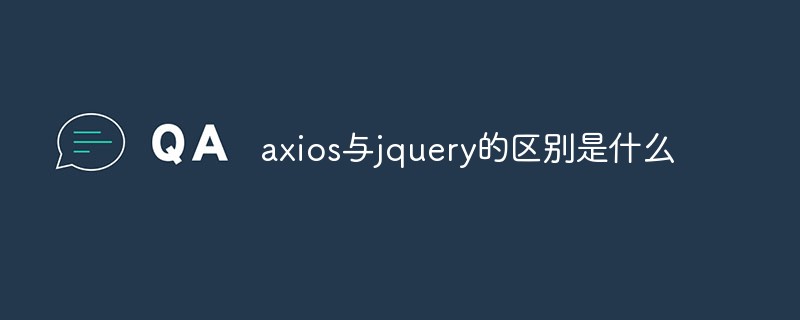 axios与jquery的区别是什么Apr 20, 2022 pm 06:18 PM
axios与jquery的区别是什么Apr 20, 2022 pm 06:18 PM区别:1、axios是一个异步请求框架,用于封装底层的XMLHttpRequest,而jquery是一个JavaScript库,只是顺便封装了dom操作;2、axios是基于承诺对象的,可以用承诺对象中的方法,而jquery不基于承诺对象。
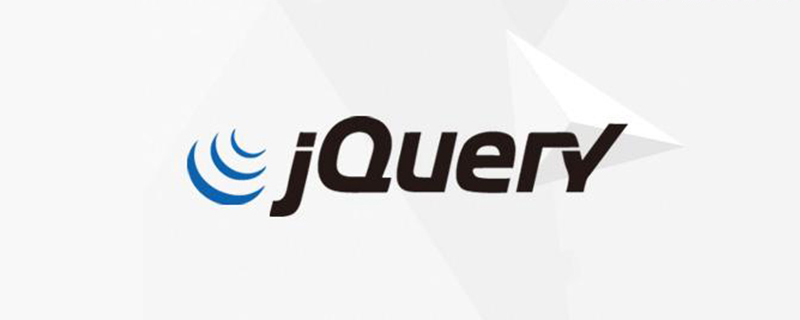 jquery怎么修改min-height样式Apr 20, 2022 pm 12:19 PM
jquery怎么修改min-height样式Apr 20, 2022 pm 12:19 PM修改方法:1、用css()设置新样式,语法“$(元素).css("min-height","新值")”;2、用attr(),通过设置style属性来添加新样式,语法“$(元素).attr("style","min-height:新值")”。
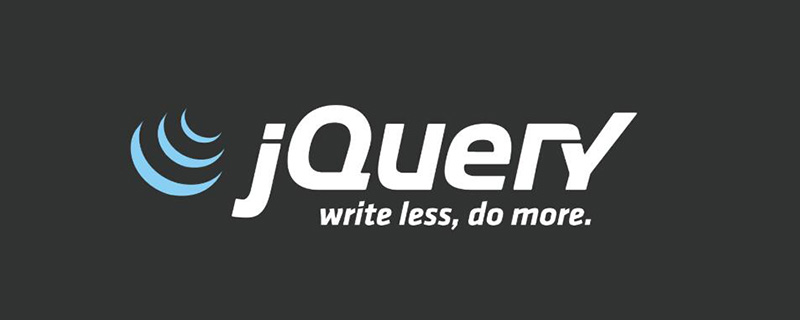 jquery怎么在body中增加元素Apr 22, 2022 am 11:13 AM
jquery怎么在body中增加元素Apr 22, 2022 am 11:13 AM增加元素的方法:1、用append(),语法“$("body").append(新元素)”,可向body内部的末尾处增加元素;2、用prepend(),语法“$("body").prepend(新元素)”,可向body内部的开始处增加元素。
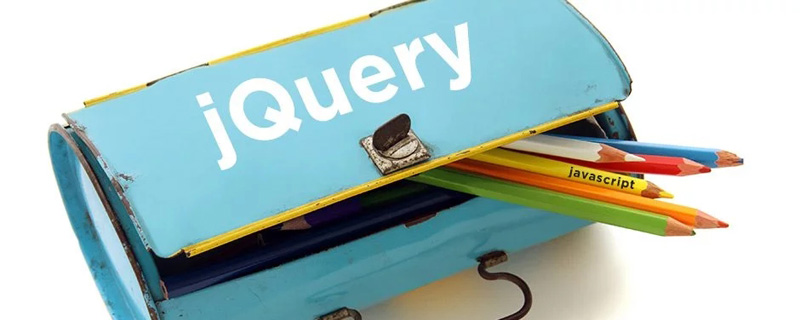 jquery怎么删除div内所有子元素Apr 21, 2022 pm 07:08 PM
jquery怎么删除div内所有子元素Apr 21, 2022 pm 07:08 PM删除方法:1、用empty(),语法“$("div").empty();”,可删除所有子节点和内容;2、用children()和remove(),语法“$("div").children().remove();”,只删除子元素,不删除内容。
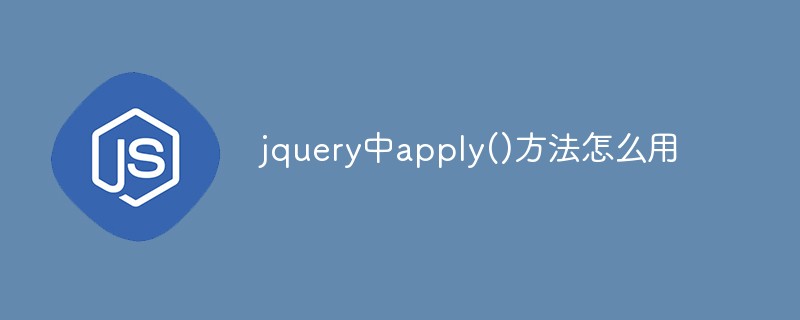 jquery中apply()方法怎么用Apr 24, 2022 pm 05:35 PM
jquery中apply()方法怎么用Apr 24, 2022 pm 05:35 PM在jquery中,apply()方法用于改变this指向,使用另一个对象替换当前对象,是应用某一对象的一个方法,语法为“apply(thisobj,[argarray])”;参数argarray表示的是以数组的形式进行传递。
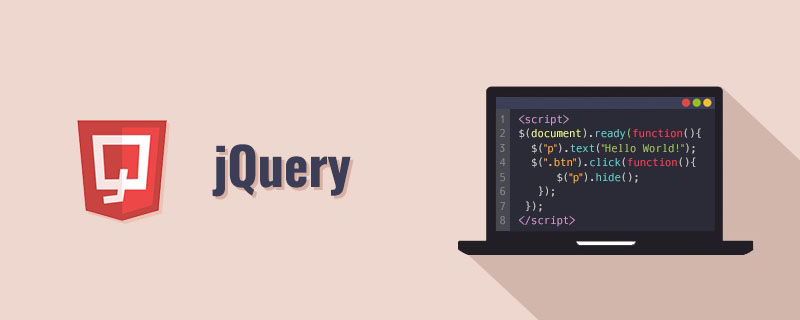 jquery怎么去掉只读属性Apr 20, 2022 pm 07:55 PM
jquery怎么去掉只读属性Apr 20, 2022 pm 07:55 PM去掉方法:1、用“$(selector).removeAttr("readonly")”语句删除readonly属性;2、用“$(selector).attr("readonly",false)”将readonly属性的值设置为false。
 jquery on()有几个参数Apr 21, 2022 am 11:29 AM
jquery on()有几个参数Apr 21, 2022 am 11:29 AMon()方法有4个参数:1、第一个参数不可省略,规定要从被选元素添加的一个或多个事件或命名空间;2、第二个参数可省略,规定元素的事件处理程序;3、第三个参数可省略,规定传递到函数的额外数据;4、第四个参数可省略,规定当事件发生时运行的函数。


Hot AI Tools

Undresser.AI Undress
AI-powered app for creating realistic nude photos

AI Clothes Remover
Online AI tool for removing clothes from photos.

Undress AI Tool
Undress images for free

Clothoff.io
AI clothes remover

AI Hentai Generator
Generate AI Hentai for free.

Hot Article

Hot Tools

ZendStudio 13.5.1 Mac
Powerful PHP integrated development environment

mPDF
mPDF is a PHP library that can generate PDF files from UTF-8 encoded HTML. The original author, Ian Back, wrote mPDF to output PDF files "on the fly" from his website and handle different languages. It is slower than original scripts like HTML2FPDF and produces larger files when using Unicode fonts, but supports CSS styles etc. and has a lot of enhancements. Supports almost all languages, including RTL (Arabic and Hebrew) and CJK (Chinese, Japanese and Korean). Supports nested block-level elements (such as P, DIV),

SecLists
SecLists is the ultimate security tester's companion. It is a collection of various types of lists that are frequently used during security assessments, all in one place. SecLists helps make security testing more efficient and productive by conveniently providing all the lists a security tester might need. List types include usernames, passwords, URLs, fuzzing payloads, sensitive data patterns, web shells, and more. The tester can simply pull this repository onto a new test machine and he will have access to every type of list he needs.

WebStorm Mac version
Useful JavaScript development tools

DVWA
Damn Vulnerable Web App (DVWA) is a PHP/MySQL web application that is very vulnerable. Its main goals are to be an aid for security professionals to test their skills and tools in a legal environment, to help web developers better understand the process of securing web applications, and to help teachers/students teach/learn in a classroom environment Web application security. The goal of DVWA is to practice some of the most common web vulnerabilities through a simple and straightforward interface, with varying degrees of difficulty. Please note that this software





